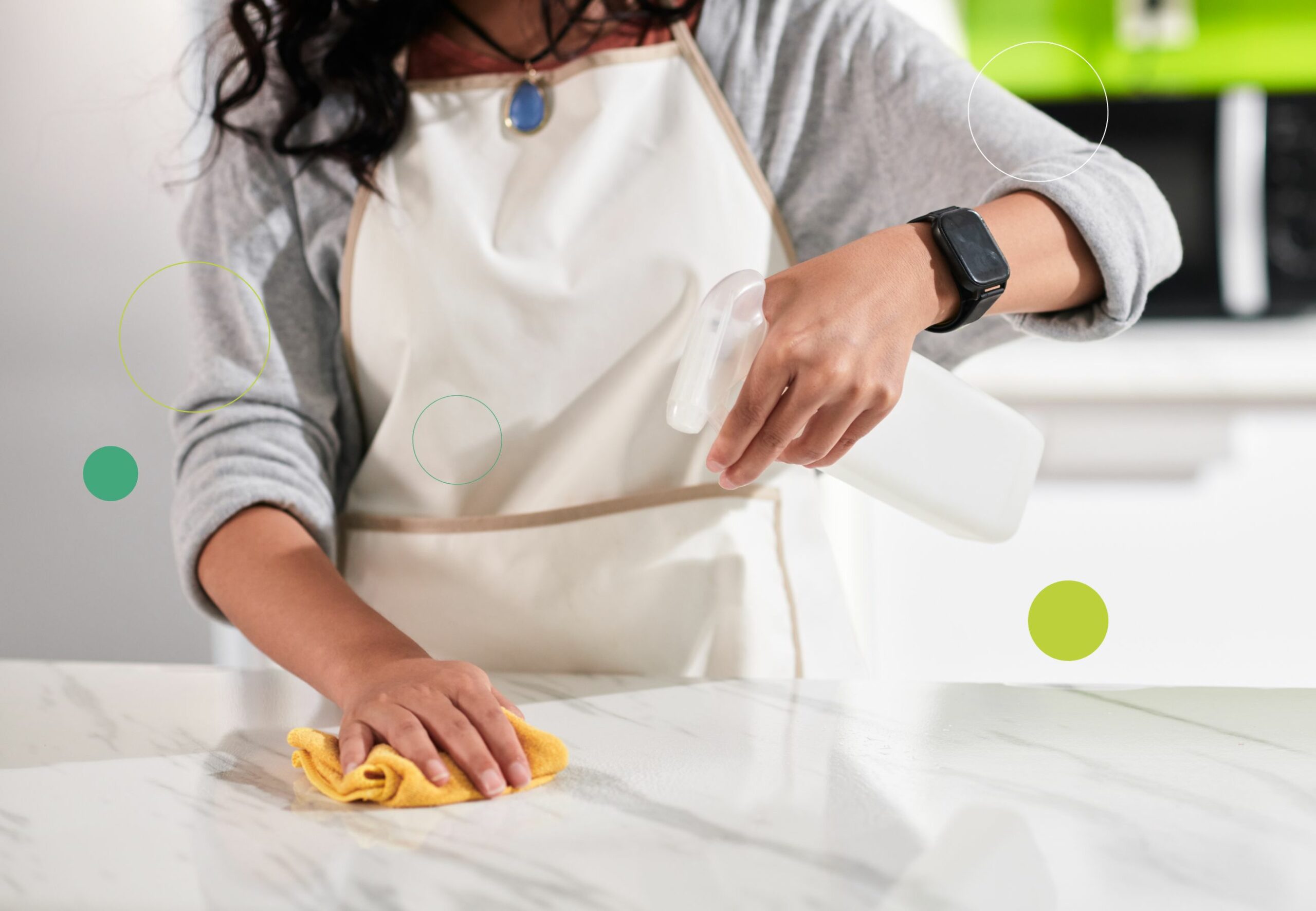During the COVID-19 pandemic, we all reached for cleaning products that would keep us and our loved ones safe.
But are we using antibacterial cleaning products too much? Are they necessary, or could they be damaging our health?
What is an antibacterial cleaning product?
Read the label on any cleaning product and you’ll see lots of confusing chemical terms. So what do they all mean?
An antibacterial cleaning product kills or inhibits the growth of nasty bacteria such as salmonella. There are two types:
- Non-residue, such as bleach and alcohol, which work when they are in contact with the surface, then wipe away with a cloth leaving nothing behind
- Residue: Which stay on the surface to continue to kill bacteria. These contain ingredients such as triclosan.
Antibacterial cleaners don’t protect against viruses such as flu. However, these viruses are often airborne, so spread through coughs and sneezes rather than on surfaces.
How do antibacterial cleaners work?
Antibacterial cleaning products need to be in contact with a clean surface to kill bacteria. So spraying your anti-bac spray onto a greasy surface won’t be very effective, you’ll need to clean the surface first. Some antibacterial products need time to work, so check the directions before you start.
Anti-bac vs disinfectant
Disinfectants kill both bacteria and viruses. The won’t remove grease and dirt, so like anti-bac products, they should be used on a clean surface.
Is antibacterial cleaning more effective?
Actually, studies have shown that it is the friction we use when we clean which removes the bacteria, rather than the products we use. So rubbing our kitchen surfaces with a clean damp cloth, using a simple soap solution, can be just as effective.
In the USA, antibacterial handwashes containing ingredients such as triclosan were banned in 2016, because there was not enough evidence that they are significantly more effective than soap and water.
Using antibacterial cleaning products safely
Many cleaning products, including anti-bac products, contain ingredients which can irritate our skin and even cause breathing problems if we are exposed to them regularly. This is why this is a particular concern for professional cleaners.
- Always open windows and use cleaning products in a well ventilated space
- Use gloves or wash hands thoroughly after use
- Never mix cleaning products as they release toxic fumes
- Always keep away from children.
Should we ditch the anti-bac?
Some scientific studies have raised concerns that antibacterial cleaning products could be contributing to the problem of antibiotic resistance. While these products destroy harmful bacteria such as salmonella, they also destroy “good” bacteria in our environment and on our skin. This can lead to an imbalance and has been associated with increases in allergies.
Of course, if someone in your home has suppressed immunity or has been ill, then antibacterial products may be the right choice for you.
But for most of us, vinegar, lemon, or simple soap and water can be effective against bacteria – especially in combination with a little elbow grease.
New, probiotic alternatives to anti-bacterial cleaning products are also becoming available. These work by flooding our surfaces with “good” bacteria, outcompeting harmful bacteria and removing grime using enzymes. These are available from online stockists such as Lily and Lime, and I’m pondering about how to test them over the coming year. I’d love to hear your thoughts on that.
Join our Just One Swap Campaign
Each month we are swapping one cleaning product for a more planet-friendly alternative. Will you join us? Subscribe to our newsletter to get our recommendations.
Changing the world, one swap at a time.

